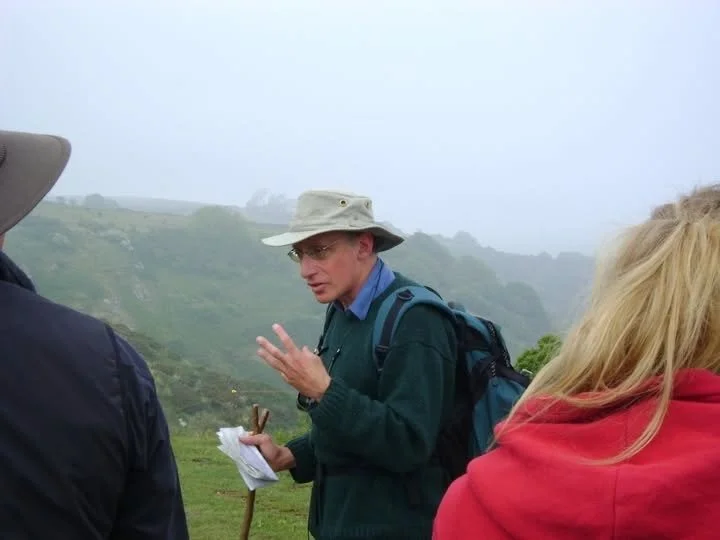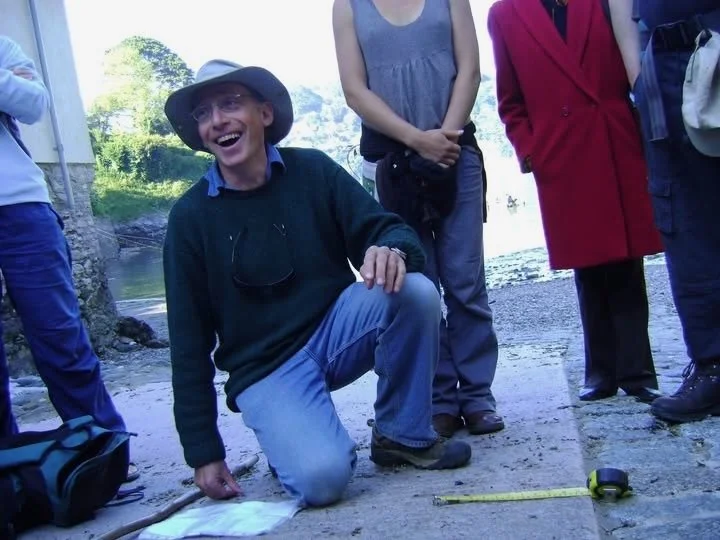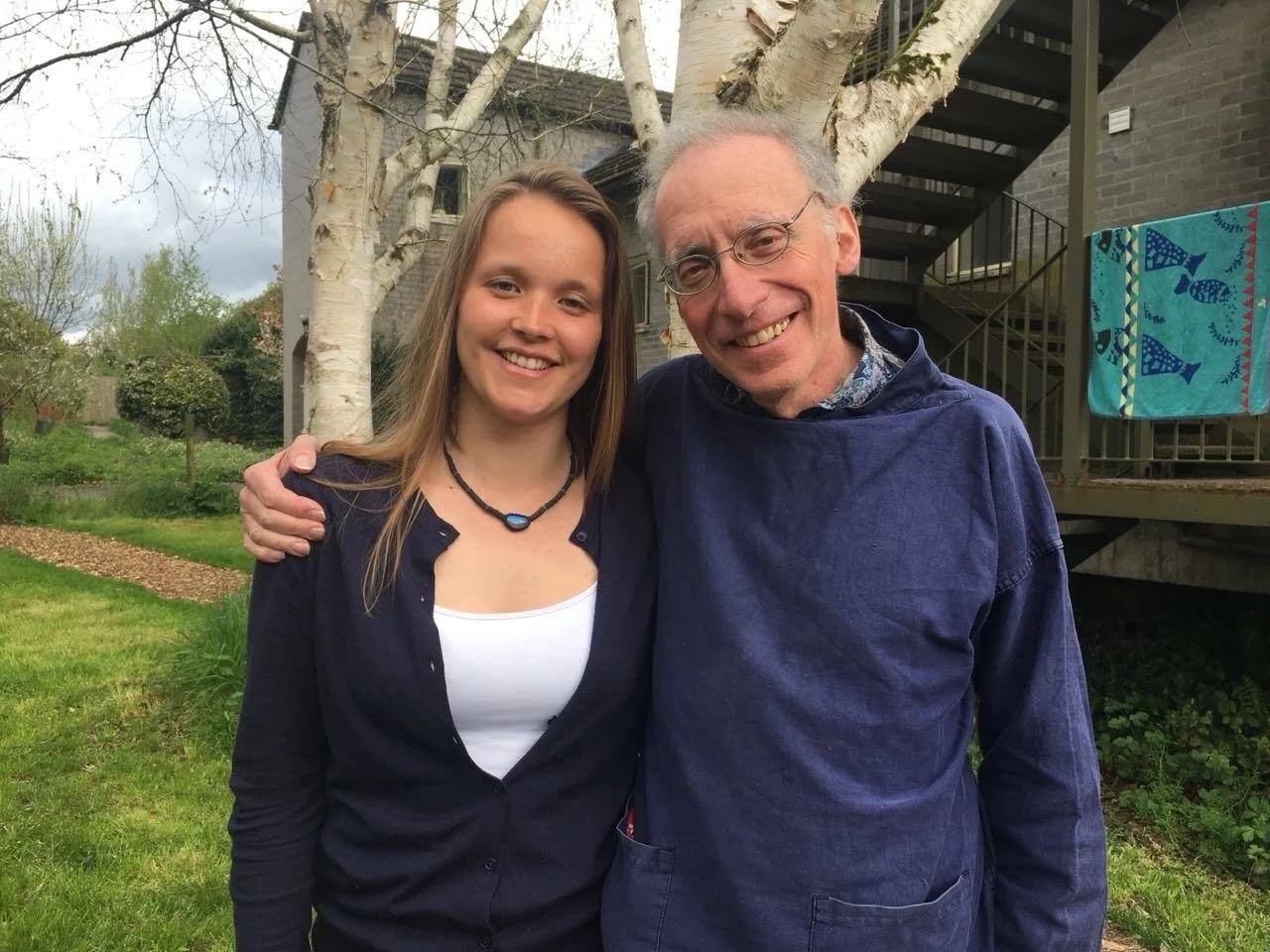Remembering Stephan Harding: Holistic Scientist, Gaian, Colleague and Friend
In 2016, I ventured out from the depths of the scientific institution, convinced that there were too many questions that science simply could not address. It was some of these questions that I was asking my supervisor at Imperial College London, about why scientists researched what they researched, how they decide what is important, what the implications are of separating ethics from science, and how to develop technology that genuinely serves the interests of society and not vice versa.
I chose to be a scientist out of a profound love of the patterns, systems, and mystery of the world. It wasn’t simply ‘loving nature’, it was a sense since I was a child that in the space between nature and me was some kind of magic, something that obeyed different rules and ways of being and knowing that went beyond the written and known. It held a sense of infinite possibility. As I developed as a scientist, I became interested in how we engage the ethical and imaginative muscles of scientists and technologists, and drawing on my biological background I started to see that the science I was studying (symbiosis and interdependence in bacteria and algae, extending to things like the microbiome, endosymbiosis, and complex genetic trees) proposed a new paradigm for how we could think about ourselves, and society. As Lynn Margulis said, life is built on networking, not (just) competition. I was running workshops for young people through a social enterprise called 225 Academy, and I started to incorporate the material I was learning: biomimicry, regenerative design thinking, imagination, futures and ethics.
This curiosity led me to discover words for what I was doing: animism, Gaia, deep ecology, intuition, and imagination. Eight years ago, through this discovery, I met a dear ally, mentor, and friend, Stephan Harding. I fell in love with his gentleness, his curiosity, and his inner knowing. It’s like he was the keeper of magical secrets of the Earth, and one of Gaia’s keepers, and had dedicated his life to helping people understand and access the magic of discovering their Gaian selves. He felt to me like a kind of forest mystic, living in a small house on the campus of Schumacher College, surrounded by the two things he loved: nature and learning.
I confided in Stephan that I was thinking of leaving my scientific path to follow my heart into working on what was truly calling me: teaching and pursuing alternative education to help people access this scientific spirituality and fall in love with the Earth. I was interested at that time in how we could take people through a process of transformation to truly connect to their enchantment with life, and activate a desire to protect and regenerate the earth. Stephan counselled me to not make the decision lightly, because it was difficult to go back once you had left. He said it wasn’t impossible, but it was hard. He suggested that I could become a holistic scientist like him, and maybe come and spend some time at the College.
After a number of chance encounters, I went to California to train with Joanna Macy in the Work That Reconnects. In Joanna, I found another person who ended up, together with Stephan, being one of the most influential teachers in my life. A few months later, I had finally decided to take leave, at least for a year, from science (or what Stephan would call reductionist science). Soon after, he suggested I come to Devon and spend some time at the College. He offered me a part-time job working with him to help assist him on the Holistic Science MSc, helping review it and redevelop it for future years, and in the process learn about teaching at the College and the curricula. On the side, I would develop my own materials and teach lectures as part of the MSc.
Words cannot describe what an impact this had on my life. It was the opportunity to incubate much of the thinking and work that I do today, combining fact and reason with imagination and intuition to help people fall in love with the planet. For two years, I would go through periods of working very closely with him, seeing him for two or three days of the week, and being involved in the life of the college. In our time together, he would teach me about his work and thinking and explain the journey he had been on to develop himself as a Gaian Scientist and what Joanna would call a bodhisattva. There were times that Joanna, Stephan and I would come together on a Zoom call, the three of us, and those were very special times indeed.
We loved to work together, and the best thing of all was teaching together. Stephan came alive in his teaching, often using his guitar and singing, rather than simply lecturing, and using all sorts of different modalities to teach the Holistic Science curriculum. Together, we introduced new and updated science, and experiential exercises, engaging the imagination and guided visualisations. He introduced me to friends and collaborators: Philip Frances who co-taught the MSc with Stephan, Jamie Perrelet who taught on the second module in complexity and Joana Formoshino who taught on the first module on Goethe and phenomenology. I taught on the third module on Gaia. We were incredibly lucky. Stephan described Jamie, Joana and me as the ‘next generation’ of holistic scientists, to take this work and teaching into the future. He would refer to us as the ‘three musketeers’ and he saw it as very important to nurture and cultivate the future of holistic scientists.
Stephan helped me come to terms with my journey, and define the kind of scientist I would be. Together, we unpicked my ancestry, which is a combination of Scottish artists, British scientists, and Hungarian villagers, and talked about what it means to continue in a lineage of scientists but with the awareness and tools to change how science is done. We asked: what did it mean to be a scientist in the world of separation and control, largely equipped by Cartesian ways of knowing, and dominated by reductionist science and rationality. I went through a process of remodelling who and what I was with the support of Stephan, strengthening a conviction that science can be in service of relationality and interdependence. I became a renegade scientist and saw that my skills and tools could play a role in what Joanna Macy calls the Great Turning. Stephan joked in his characteristically wry way, that if I was to have a name, it would need to be ‘Gaia’s Bulldog’.
Stephan was the heart of the college. He was unwavering in his commitment to the college, to its land, its more-than-human beings and to the students. He quite literally lived at the heart of the college. Schumacher would not have existed (and would have been entirely different) without him. Over the years, I would visit him, and he would always make time for me. There were times he would be going through challenges, (increasingly, health-related), and we would sit by the pond in what he lovingly called ‘Gaia’s garden’ or sit outside in the sun with his wonderful wife Julia with a plate of biscuits and tea. And when I was going through some challenge or another, meeting the current system as it was, or finding ways to weave within the ‘system machinery’, Stephan would make time to talk it through with me. He was always so encouraging - and said that some people like him were meant to live as mystics outside of the system, and others were meant to go inside and help bring Gaian ways and life into the heart of society.
While he was healthy, our favourite thing to do was to go for a walk in the Schumacher forest and talk about life and ecology and witness Gaia together – in the mushrooms growing on an old trunk, or the bats swooping as the sun set, or the Redwoods at the bottom of the North Woods. We would stop every now and then and just breathe in the smell of the Redwoods and the moisture and allow the forest to speak to us. I feel a tremendous loss that he is no longer here with us. Although he is greatly present in other ways. I thought we had many more years to come of talks and friendship and allyship, and collaboration, and many more walks in the woods. We were planning to create a Gaian course together, and it feels very strange to think we will not have the chance to create all the things we wanted to do together. I will miss him as a friend and co-creator dearly.
My mind wanders too, to the diminishing spaces for scientists who are venturing beyond the academy and dominant ways of seeing and viewing the world, driven by a quest to cultivate a different way of seeing and knowing. Just a couple of days after Stephan’s passing, Schumacher College in its previous form officially closed down, which felt far from being a coincidence. As the old chapter dies, a new one begins: and like a phoenix, a new chapter of the college, led by faculty and alumni, is spreading its wings and emerging from the ashes.
The spirit of the college lives on – as does the spirit of Stephan – in all the people, both Schumacher and Stephan have touched and moved. He ignited in them a burning love for the planet and the myriad ways we can learn from Gaia and all her forms and manifestations. Stephans’ teaching and wisdom has been a clarion call to me and so many others, and helped cultivate the seed that I have been tending and growing in my own work. He was so ahead of his time, and I am so glad he died knowing how many people would be carrying his work and legacy forward once he was gone.
Farewell to a dear friend, the Gaian, dreamer, holistic scientist and teacher. As I imagine him now, I see him sitting in a chair, at the bottom of Gaia’s garden, surrounded by the gentle tangled wilderness of the Devon countryside in a sunny and warm Spring afternoon. The birds are singing, and the air is a buzz with insects. Stephan sits with his face gently tilted towards the sun, with a look of absolute peace and contentment on his face, his eyelids closed and his long eyelashes resting against his cheek. In his arms, he holds a Spanish guitar which he was either just playing a second before, or is about to start playing. I hear a sound and I look around to the house, Yarner Barn, searching for where it came from. I turn my head to carry on walking towards Stephan, but suddenly he is gone. Even though I cannot see him, I know he is there.
Thank you Stephan, Deep Ecologist, Alchemist, Jungian Soul Activist, Musician, Companion and Friend.
Farewell, my friend.


